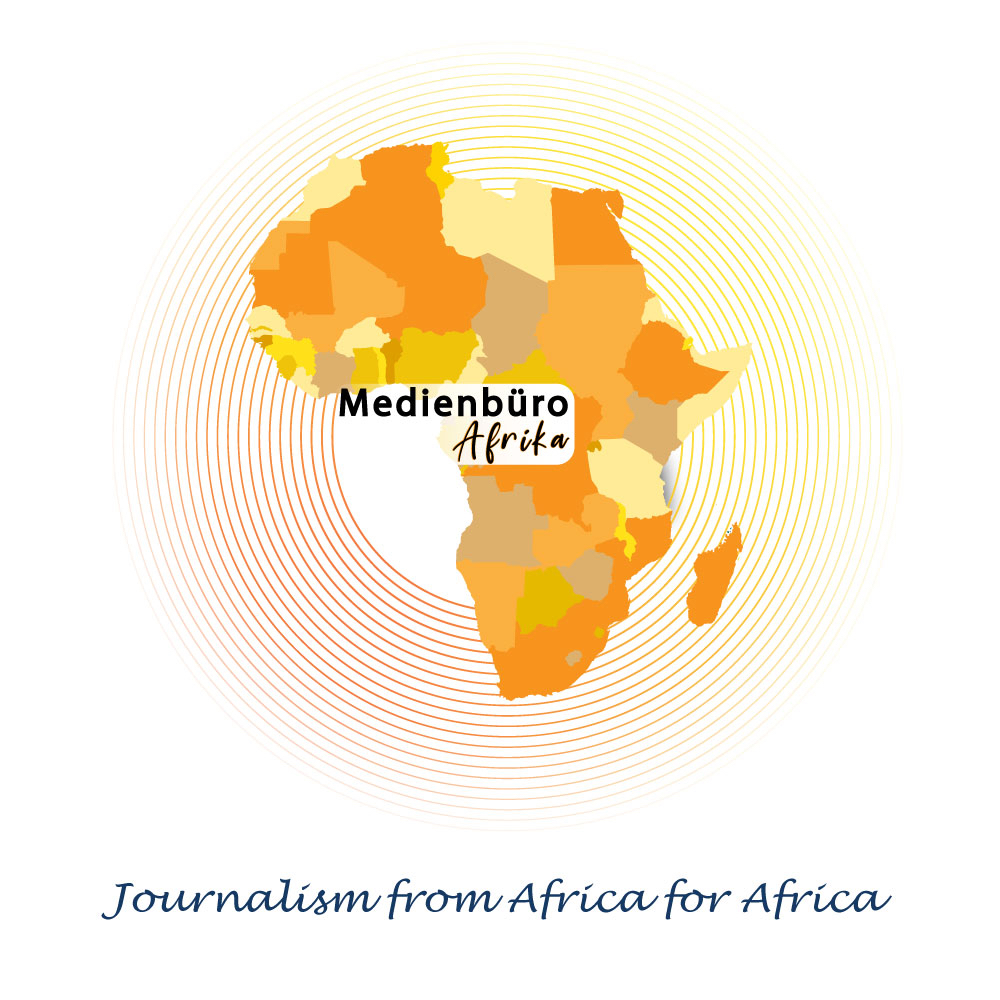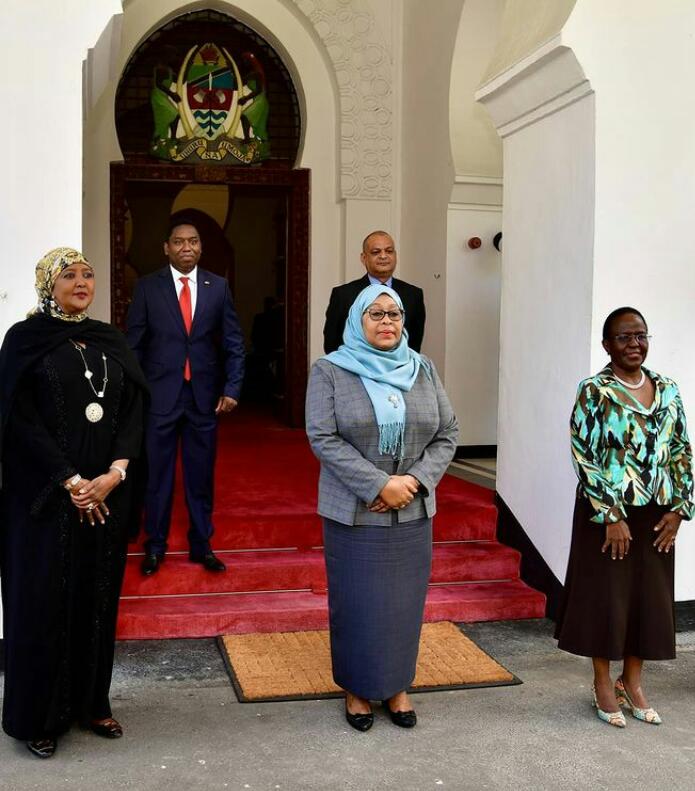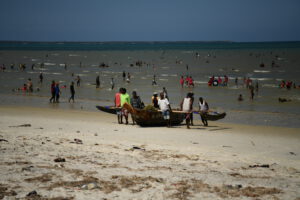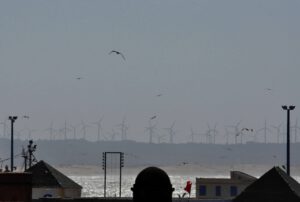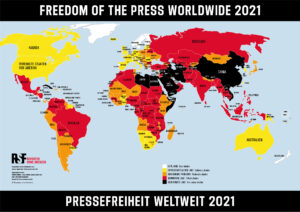Tansania John Pombe Joseph Magufuli October 1959- March 2021 was a Tanzanian politician who served as the fifth president of Tanzania from 2015 until his death on March 2021. He served as Minister of Works, Transport and Communications from 2000 to 2005 and 2010 to 2015 and was chairman of the Southern African Development Community from 2019 to 2020.
Magufuli started his education at the Chato Primary School from 1967 to 1974 and went on to the Katoke Seminary in Biharamulo for his secondary education from 1975 to 1977 before relocating to Lake Secondary School in 1977 and graduating in 1978. He joined Mkwawa High School for his Advanced level studies in 1979 and graduated in 1981. That same year he joined Mkwawa College of Education (a constituent college of the University of Dar es Salaam) for a Diploma in Education Science, majoring in Chemistry, Mathematics, and Education.
Magufuli earned his Bachelor of Science in education degree, majoring in Chemistry and Mathematics as teaching subjects from the University of Dar es Salaam in 1988. He also earned his masters, and doctorate degrees in chemistry from the University of Dar es Salaam in 1994 and 2009, respectively. In late 2019, he was awarded an honorary doctorate by the University of Dodoma for improving the economy of the country.
Magufuli ventured into elective politics after a short period as a teacher at The Sengerema Secondary School between 1982 and 1983. He taught chemistry and mathematics. Later on, he quit his teaching job and was employed by The Nyanza Cooperative Union Limited as an industrial chemist. He remained there from 1989 to 1995, when he was elected as Member of Parliament representing Chato district.
He was appointed Deputy Minister for Works in his first term as MP. After President Jakaya Mrisho Kikwete was requested to take office, he moved John Joseph Magufuli to the post of Minister of Lands and Human Settlement in 2006. Subsequently, he served as Minister of Livestock and Fisheries from 2008 to 2010 and again as Minister of Works from 2010 to 2015.
Running as the presidential candidate of Chama Cha Mapinduzi (CCM), the country’s dominant party, Magufuli won the October 2015 presidential election and was sworn in on 5 November 2015; he was re-elected in 2020. when he was sworn in as president in October 2015, the late Magufuli seemed to be the sort of person Tanzania needed as an efficient; Before he was president he acquired the nickname “the bulldozer” for driving a programs to build roads as minister for works, and later was hailed for his anti-corruption stance and his distinct dislike for wasting money.
On the very first day of his presidency, proved not to tolerate the country’s chronic absenteeism in its civil service, the surprise visits were common and were costly to the victims. He also managed to address the problem of the so-called “ghost-servants” – essentially non-existent employees – from the public payroll, and fired officials considered corrupt or under-performing, in public. Sometimes this was even done live on television. But even his critics agree that Magufuli contributed to Tanzania’s development, investing in several large infrastructure projects such as the creation of a standard gauge railway to connect the country , the expansion of major highways, and the construction of a bus rapid transit system in the Primate city of Tanzania notably Dar es Salaam.
The six yaers before the death of President Magufuli, the country has moved toward full-on authoritarianism. It can also be said Totalitarian rule since the ever-trusted existing constitution didn’t consider mostly in decision: the condition meant to be worse as the power over-extended and was beyond constitutional mandate.
Since taking power following a flawed election in 2015, President Magufuli and his regime have ruthlessly suppressed the country’s freedom of media i.e. all the media remains active over the country they are only programming drama shows so as to impress the existing regime (they are more impressive but not expressive).
Earlier 2016, barely into his term, his administration announced that state TV would no longer broadcast live parliamentary proceedings, officially as a cost-cutting measure. The opposition saw this as censorship as it was among the few ways it could hold the government to account. It planned demonstrations against the ban, but the government responded by banning all protests. Cybercrime laws and the effective silencing of critical newspapers and independent bloggers have led to a further deterioration of the country’s media landscape ahead of next year’s scheduled elections.
Several newspapers and radio stations have been closed. Legislation enacted in 2016 made it harder to criticize those in power. Furthermore, harassment, intimidation, arrests, and even disappearances of some people (disappearance to the unrecognized place) became commonplace few years ago. Other critics of the regime, including opposition MPs, are frequently arrested. One MP, TUNDU ANTIPASS LISSU was shot in 2017 in an assassination attempt. Civil society leaders, opposition politicians, journalists, and businesspeople feel unsafe on their own soil and with good reason. But from the outset, it was also clear there was a darker side to his leadership, that a number of his initiatives would slowly chip away at the country’s democratic space. By means of legislation, and often through extra-legal means, the regime has sought to treat harshly independent voices, particularly those of the political opposition, but also members of civil society, the business community, and organized religion.
Religiously people could not condemn the existing wave of political situation but the priests and priestess have been seeming to back up the regime with its events. The atmosphere existing is like religions also was politicized, for instance they seem to be appreciative of the drama and events spread all over the country; and freedom of worship was not as it used to be democratically. Hence the priests are more praiseful to the regime than the kingdom of God.
The tax rates are now higher regardless socio-economic conditions of the people. The taxes existing compared with quality of life unmatched and this prove the government to be hunger than the people. The condition is much worse to the entrepreneurs at all levels. The investments recently have become difficulty to be done: Companies such as Acacia Mining have been shaken down for huge tax bills. Hundreds of vital businesses have scaled back their operations. By all independent accounts, economic growth has declined, unemployment is higher and economic hardships have worsened. The wave of unemployment compared with taxes existed is a dirt signal of social-economic condition to be poor though the country has been officially being decaled to undergo middle-income economy. Statistically it seems to be accurate but social-economically the condition of millions of the people is the Outlier.
Reproductively the Former President was contradictory in Population control as he was acknowledged addressing the issue through his speech, “Those going for family planning are lazy; they are afraid they will not be able to feed their children. They do not want to work hard to feed a large family and that is why they opt for birth controls and end up with one or two children only. He urged people not to listen to those advising about birth control, some of it coming from foreigners, because it has sinister motives. Furtherly the former government was repressing the homosexuality as The Dar es salaam regional commissioner Paul Makonda started to punish the victim of that behavior. The issue was considered serious in the first 5 years of the former president
Urban planning issue had been taken seriously in the first five years throughout 2017 as the destruction of residential houses and other buildings took place; where the issue got attention to media is resident houses destroyed without even compensation from the government. Other people who their buildings were destroyed have been claimed to be opposition during the 2015 general election.
On the matter of Free Education the situation is Desperate. Education became Quantitative rather than Qualitative. Even the level of Performance has proved to be uncompetitive as it rising every year due to Poll-Tricks (Politics). Since 2016 Education performance statistics are politically standardized but the level of literacy and quality is still doubtful. Some of the opinions were suggested that, “Education is not based on registration, but on the quality of education.
Moreover he went on to become a controversial leader, especially over his response to the coronavirus pandemic. When Covid-19 arrived in Tanzania, the late President Magufuli did not believe in people staying at home or lockdowns. He wanted them to get into the churches and mosques to pray. Since June 2020, when he declared the country “Covid-19 free”, the president, along with other top government officials, mocked the efficacy of masks, doubted if testing worked, and teased neighboring countries which imposed health measures to curb the virus. There was little testing and no plans were made for a vaccination program, leaving the country as an outlier of the statistics released during the Covid-19 nightmare. By May 2020, Magufuli and Dar es Salaam regional commissioner announced that the disease had been defeated by national prayer, and called for a public celebration. Furtherly the corona festivals was performed as a pity party due to the pre-existng nightmare as declared. “The corona disease has been eliminated thanks to God”, Magufuli told the church congregation in Dodoma, the country’s capital. The World Health Organization (WHO) has questioned the government’s approach to COVID-19. To the further extent Magufuli instructed security forces to blindly test coronavirus PCR test kits for quality on goats, papaya, sheep, and motor oil. All of them, he said, had been found to be positive for COVID-19. The last official data on the coronavirus in Tanzania, under President Magufuli, was published in late April 2020. Magufuli had dismissed the head of the national laboratory, and the distribution of non-governmental information on the spread of the virus had become a crime. He disputed the effectiveness of face masks and testing. Magufuli falsely claimed in a January 2021 speech: “Vaccinations are dangerous. If white people were able to come up with vaccinations, a vaccination for AIDS would have been found. “Instead, Magufuli urged steam inhalation and herbal medicine, neither of which is approved by the WHO for the treatment of COVID-19.
As the late President Magufuli was known for promoting misinformation about COVID-19 during his leadership over the pandemic in Tanzania. After a lengthy absence (for about two weeks) from public appearances, unconfirmed rumours circulated that he, himself, had been hospitalized with the disease. Opposition politician Tundu Antipas Lissu, citing unnamed sources but without providing evidence, said it was Magufuli who was hospitalised in Kenya during the two weeks disappearance, having contracted COVID-19. He further claimed that there were plans to move Magufuli to India. Lissu later claimed that Magufuli had died by 10 March. Nevertheless his death announced on 17 March 2021 was attributed by the government to a long-standing heart issue. He was succeeded by his Vice President, Samia Suluhu Hassan.
Samia Hassan Suluhu was born 27 January 1960. became Tanzania’s first female vice-president following the 2015 general election, after being elected on the CCM ticket with the late President Magufuli. Suluhu and Magufuli were re-elected to a second term in 2020. She briefly served as the second female interim Head of State in the EAC: 27 years after Sylvie Kinigi of Burundi, spanning a period around the end of the year 1993.
She completed her secondary education in 1977 and began working. Subsequently, she pursued a number of short-courses on a part-time basis. In 1986, she graduated from the Institute of Development Management (present-day Mzumbe University) with an advanced diploma in public administration. Between 1992 and 1994, she attended the University of Manchester and earned a postgraduate diploma in economics. In 2015, she obtained her MSc in Community Economic Development via a joint-programme between the Open University of Tanzania and the Southern New Hampshire University. After her secondary school education, she was employed by the Ministry of Planning and Development as a clerk. Upon graduation with her public administration degree, she was employed on a project funded by the World Food Programme.
Previously Samia President Samia Suluhu served as a minister in the semi-autonomous region during the administration of President Amani Karume. She served as the Member of Parliament for the Makunduchi constituency from 2010 to 2015 and was the Minister of State in the Vice-President’s Office for Union Affairs from 2010 to 2015. In 2014, she was elected as the Vice-Chairperson of the Constituent Assembly tasked with the drafting of the country’s new constitution.
Currently she is serving as the sixth president of Tanzania. She is a member of the ruling social-democrat Chama Cha Mapinduzi (CCM) party. Suluhu is the third female head of government of an East African Community (EAC) country, after Sylvie Kinigi in Burundi and Agathe Uwilingiyimana in Rwanda, and is also the first female president of Tanzania.
The country still going the new succesor (Mama Samia S. Hassan) of the late pressident has all the weight on her shoulder, with four years to go over this phase; With the hangover of Covid-19 and the death of the late Magufuli; the burden left is still huge to Her Tanzania Majesty. Thus the pressure still increasing all over the country to prove that she can make it untill the end of the phase. Consequently the grievances from the impoverished people as well as opposition still on fire since the nightmares were those distressed and afflicted under the regime of the late Magufuli. We say “Bye” to the Old “Hi” to the New as the time will tell the future is not for us to see.
Author: Synonym! Responsible: Dr. Thomas Isenburg Contact: presse@thomas-isenburg.de
